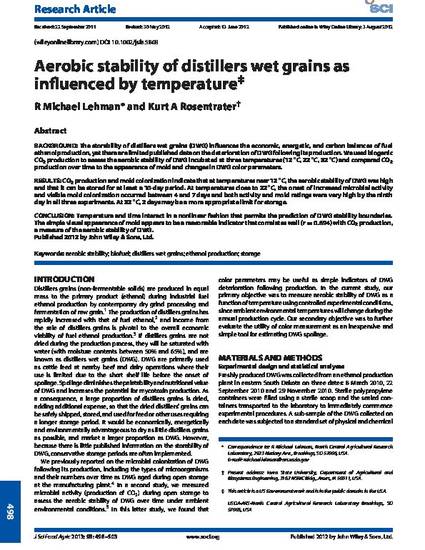
BACKGROUND: The storability of distillers wet grains (DWG) influences the economic, energetic, and carbon balances of fuel ethanol production, yet there are limited published data on the deterioration of DWG following its production. We used biogenic CO2production to assess the aerobic stability of DWG incubated at three temperatures (12 °C, 22 °C, 32 °C) and compared CO2production over time to the appearance of mold and changes in DWG color parameters.
RESULTS: CO2 production and mold colonization indicate that at temperatures near 12 °C, the aerobic stability of DWG was high and that it can be stored for at least a 10-day period. At temperatures close to 22 °C, the onset of increased microbial activity and visible mold colonization occurred between 4 and 7 days and both activity and mold ratings were very high by the ninth day in all three experiments. At 32 °C, 2 days may be a more appropriate limit for storage.
CONCLUSION: Temperature and time interact in a nonlinear fashion that permits the prediction of DWG stability boundaries. The simple visual appearance of mold appears to be a reasonable indicator that correlates well (r = 0.694) with CO2 production, a measure of the aerobic stability of DWG.
Available at: http://works.bepress.com/kurt_rosentrater/25/

This article is from Journal of the Science of Food and Agriculture 93, no. 3 (February 2013): 498–503, doi:10.1002/jsfa.5803.